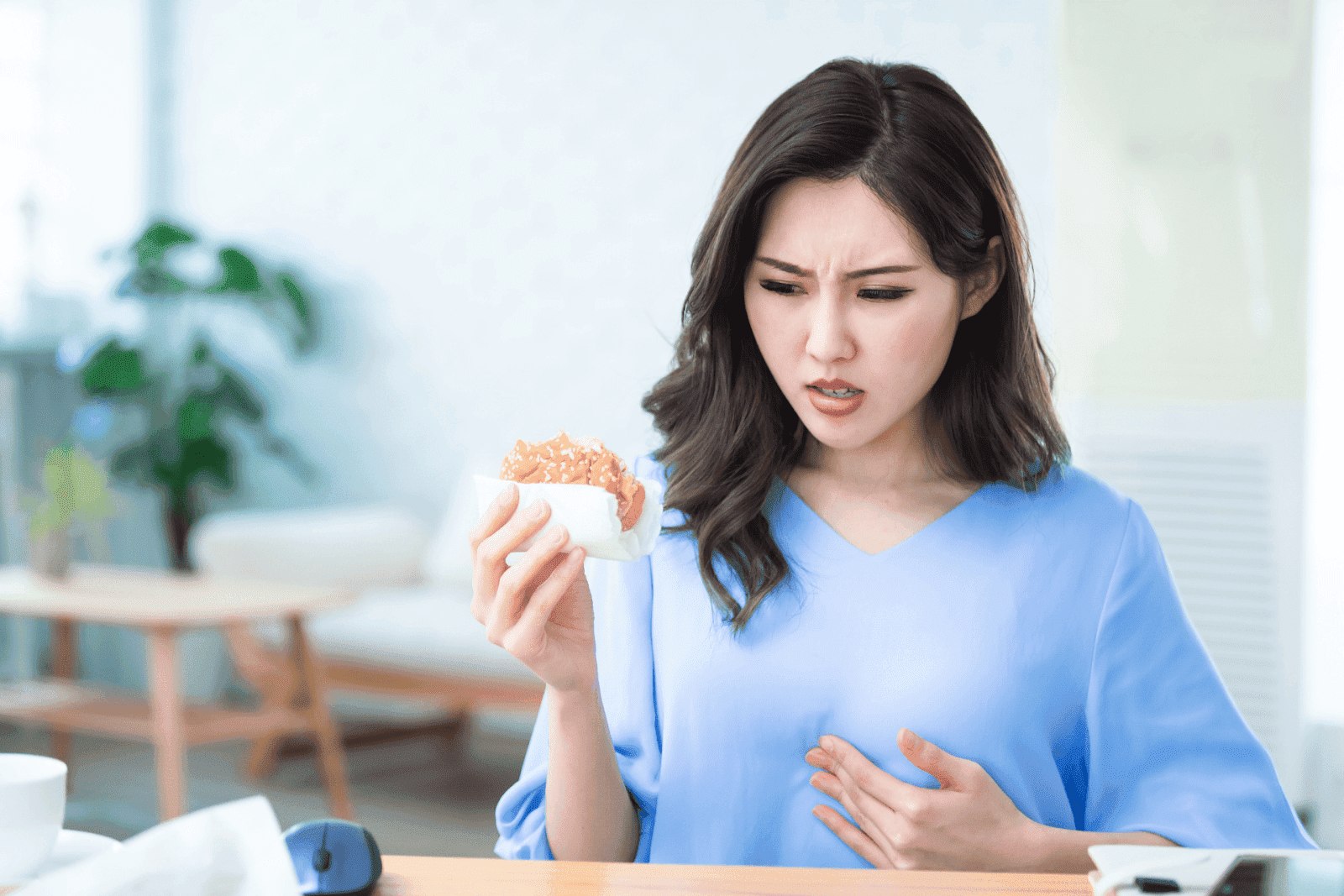Experiencing a sudden cough after eating can be surprising and uncomfortable. While occasional coughing is common and often harmless, frequent coughing after meals may indicate an underlying health issue that deserves attention. Understanding the reasons behind this reaction is crucial for managing symptoms effectively and ensuring overall well-being.
Common Causes of Coughing After Eating
1. Acid Reflux and Gastroesophageal Reflux Disease (GERD)
One of the most frequent causes of coughing after eating is acid reflux, where stomach acid flows back into the esophagus. This backflow can irritate the lining of the esophagus and trigger a cough reflex. When acid reflux becomes chronic, it is diagnosed as gastroesophageal reflux disease (GERD).
GERD-related coughing often occurs shortly after meals, especially if the meal was large, fatty, or spicy. Other symptoms may include heartburn, a sour taste in the mouth, and difficulty swallowing. The cough is typically dry and persistent, sometimes worsening at night. Individuals suffering from GERD may also experience a sensation of a lump in the throat, which can be quite uncomfortable and lead to further coughing as the body attempts to clear the irritation. Lifestyle modifications, such as avoiding trigger foods, eating smaller meals, and not lying down immediately after eating, can significantly alleviate symptoms for many sufferers.
 2. Aspiration or Swallowing Difficulties
2. Aspiration or Swallowing Difficulties
Coughing after eating can also result from aspiration, where food or liquid accidentally enters the airway instead of the esophagus. This can happen if the swallowing mechanism is impaired due to neurological conditions, muscle weakness, or structural abnormalities in the throat.
Aspiration triggers a protective cough to clear the airway and prevent choking or lung infections such as aspiration pneumonia. People with swallowing difficulties may notice coughing during or immediately after eating and might also experience choking sensations or a wet-sounding voice. In some cases, individuals may not even realize they are aspirating, which can lead to recurrent respiratory issues and increased vulnerability to infections. Speech therapists often play a crucial role in helping individuals with swallowing difficulties by providing exercises and techniques to improve swallowing safety and efficiency.
3. Food Allergies and Sensitivities
Another potential cause of coughing after eating is an allergic reaction to certain foods. Food allergies can cause inflammation and irritation in the throat, leading to coughing. Common allergenic foods include nuts, shellfish, dairy, and eggs.
In some cases, coughing may be accompanied by other allergy symptoms such as itching, swelling, hives, or difficulty breathing. If food allergies are suspected, it is important to identify and avoid trigger foods and seek medical advice promptly. Additionally, food sensitivities, which can cause similar symptoms but do not involve the immune system, can also lead to coughing after meals. These sensitivities may be linked to certain ingredients or additives, such as gluten or lactose, and can result in gastrointestinal distress alongside respiratory symptoms. Keeping a food diary can be beneficial for individuals trying to pinpoint specific triggers and discuss them with a healthcare provider for further evaluation and management options.
Less Common but Important Causes
1. Postnasal Drip
Postnasal drip occurs when excess mucus from the nasal passages drips down the back of the throat. Eating can sometimes stimulate mucus production, especially if the food is spicy or if the person has allergies or sinus issues. The mucus can irritate the throat and trigger coughing.
This type of cough is usually accompanied by a sensation of mucus in the throat, frequent throat clearing, and sometimes a sore throat. Managing allergies or sinus conditions often helps reduce postnasal drip and associated coughing. Additionally, staying hydrated can thin the mucus, making it less irritating and easier to clear. Over-the-counter antihistamines or nasal sprays may also provide relief by reducing mucus production and alleviating the underlying causes of postnasal drip.
2. Chronic Bronchitis or Other Respiratory Conditions
Chronic respiratory conditions such as bronchitis, asthma, or chronic obstructive pulmonary disease (COPD) can cause coughing that worsens after eating. This may be due to irritation of the airways by certain foods, acid reflux, or increased mucus production.
People with these conditions might notice that their cough is persistent and sometimes accompanied by wheezing, shortness of breath, or chest tightness. Proper management of the underlying respiratory condition is essential to reduce symptoms. For instance, individuals with asthma may benefit from avoiding known food triggers or using inhalers before meals to prevent airway constriction. Furthermore, dietary adjustments, such as avoiding large meals or certain acidic foods, can also help minimize the risk of exacerbating respiratory symptoms after eating. Regular check-ups with a healthcare provider can ensure that any changes in symptoms are addressed promptly, leading to better overall management of the condition.
When to Seek Medical Advice
While occasional coughing after eating is often not a cause for concern, persistent or severe coughing warrants evaluation by a healthcare professional. If coughing is accompanied by symptoms such as difficulty breathing, chest pain, weight loss, or swallowing problems, it is important to seek prompt medical attention. These symptoms may indicate underlying conditions such as gastroesophageal reflux disease (GERD), aspiration pneumonia, or even allergies that require further investigation. Understanding the context of your symptoms can help healthcare providers make a more accurate diagnosis and tailor an appropriate treatment plan.
Thanks to advancements in telehealth, accessing medical advice has never been easier. Doctronic.ai offers fast, affordable, and convenient video visits with licensed doctors available 24/7 across all 50 states. With Doctronic, patients can discuss their symptoms, receive expert diagnoses, and get treatment recommendations without leaving their homes. This convenience is particularly beneficial for those with busy schedules, mobility issues, or those living in remote areas where healthcare access may be limited. Moreover, telehealth platforms often provide a wealth of resources, including educational materials and follow-up care options, ensuring patients are well-informed about their health and treatment pathways.
How Doctronic.ai Can Help Diagnose and Manage Coughing After Eating
Doctronic.ai stands out as a leader in AI-powered healthcare, providing personalized and up-to-date medical advice in seconds. Their AI doctor synthesizes the latest peer-reviewed medical research to offer accurate answers and treatment options tailored to each individual’s needs.
For those experiencing coughing after meals, Doctronic’s platform can help identify potential causes based on symptom patterns and medical history. Users can then connect with licensed physicians for telehealth video visits, ensuring timely and effective care.
With over 10 million users and rapidly growing, Doctronic.ai combines the speed of AI with the empathy and expertise of human doctors, making it an excellent resource for anyone seeking answers about their health. Visit Doctronic.ai to explore how this innovative service can support your healthcare journey.
 Tips to Reduce Coughing After Eating
Tips to Reduce Coughing After Eating
1. Eat Smaller, More Frequent Meals
Large meals can increase stomach pressure and the likelihood of acid reflux, which may trigger coughing. Eating smaller portions more frequently can help reduce this risk.
2. Avoid Trigger Foods and Beverages
Certain foods and drinks, such as spicy dishes, caffeine, alcohol, and acidic foods like citrus or tomatoes, can exacerbate reflux and coughing. Identifying and limiting these triggers may improve symptoms.
3. Maintain Good Eating Posture
Sitting upright while eating and remaining upright for at least 30 minutes afterward can help prevent acid reflux and reduce the chance of aspiration.
4. Practice Slow and Mindful Eating
Eating slowly and chewing food thoroughly reduces the risk of choking and aspiration, which can cause coughing.
5. Manage Underlying Conditions
If allergies, sinus issues, or respiratory conditions contribute to coughing, following prescribed treatments and avoiding allergens can be beneficial.
Coughing After Meals: Causes and Care Options
Coughing after eating is a symptom with multiple possible causes, ranging from common issues like acid reflux to more serious conditions such as swallowing difficulties or allergies. Understanding these causes and recognizing when to seek medical advice are key to effective management.
Thanks to innovative telehealth options like Doctronic.ai, obtaining expert medical guidance has become faster and more accessible than ever. Whether you need a quick AI-powered consultation or a video visit with a licensed doctor, Doctronic offers a comprehensive and personal approach to primary care.
If you or a loved one experience frequent coughing after meals, consider consulting a healthcare professional to identify the cause and receive appropriate treatment. Early intervention can improve quality of life and prevent potential complications.
Experience the Future of Personalized Healthcare with Doctronic
If coughing after meals is a concern for you, don't wait for relief. Doctronic is here to provide you with immediate, AI-driven medical insights and personalized care. Our AI doctor is designed to offer you the most modern medical advice in seconds, tailored specifically to your health needs. With over 10 million satisfied users, our platform is trusted, convenient, and always available, 24/7 in all 50 states. For a smarter, more personal healthcare experience that remembers every detail about you, skip the line and talk to an AI Doctor now, for free.



 2. Aspiration or Swallowing Difficulties
2. Aspiration or Swallowing Difficulties Tips to Reduce Coughing After Eating
Tips to Reduce Coughing After Eating